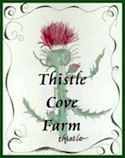I am one who embraces my age. I like the saying, "Do not regret growing older, it's a privilege denied to many." I also want to age a gracefully and healthily as I can, and with that in mind, I also keep in mind another saying from Hippocrates, "Let food be thy medicine, and medicine be thy food."
Several years ago, I set out to be proactive in my health and that of my family. About 1-1/2 years ago, we really knuckled down and embraced a sort hybrid of the Daniel Plan and the Paleo Diet, while also watching our gluten. We have all had some moderate weight loss (I'm guessing I've lost around 25-30 lbs., as we do not own a scale, because I started 2014 in a size 20 and I am now in a 14 . . . with about 2 more sizes to go), it's been slow but steady and that's fine. And in full disclosure, we consider Sunday a "grace day," in which we can have anything we want.
One issue with losing weight as an older person is that once the skin has been stretched out, it's a little harder to be "re-absorbed" back into the body. Younger people have much better success at that. One of the reasons for this is that after about age 40, we start a somewhat dramatic loss of collagen ~ much like that dramatic loss of hyaluronic acid after age 30 ~ the 2 age-defying substances that our bodies make. Bummer.
Although I use a wonderful hyaluronic acid [HA] product on my face (the only skin care I don't make, and which it seems, we sell cheaper than Amazon :-D ), and I take an HA supplement, try to find natural ways to help my body make, or keep, collagen.
According to Medical News Today, "Collagen is the most abundant protein in the human body. It is regarded as the substance that holds the whole body together and can be found in the bones, muscles, skin and tendons." It helps our skin and joints remain young; it helps our skin to wrinkle on a slower time-table
Some
key points about collagen:
- Around 30% of all the proteins in the human body are collagen.
- Type I collagen fibrils are stronger than steel.
- Collagen is most commonly found within the body in the skin, bones and connective tissues.
- Collagen ~ along with hyalauronic acid ~ gives the skin its strength and elasticity by binding water molecules, and is also responsible for the replacement of dead skin cells.
- Collagen production typically begins to decline after the age of 40.
- Collagen in many supplemental products can be derived from bovine sources.
- Controllable factors
that damage the production of collagen include sunlight, smoking and
high sugar consumption.
FOOD
SOURCES:
Other than certain supplements, food is the best and most easily absorbed way to get your collagen: egg whites, meat, cheese, fermented soy (which is generally
safe for men), cabbage, blackberries, blueberries,
cherries and raspberries.
HERBS:
~Bilberry: stabilizes collagen in the tendons, ligaments and cartilage.
~Hawthorn: an antioxidant that stabilizes collagen, dilates blood vessels and is also very good for the heart.
~Horsetail: contains silica the body needs to produce it's own collagen.
TOPICALLY~
ESSENTIAL OILS and TINCTURES~
Some essential oils are particularly good at building or supporting collagen. Essential oils are the very life oils of various plants that are steam distilled to allow us to be blessed from their potent, healing benefits. They are in such concentrated form that we only use them by drops. Some essential oils can be used directly on the skin and others need to be diluted with a carrier oil ~ such as grape seed oil, for all skin-types including oily/acne prone; jojoba and almond oils for normal/dry skin-types; olive oil for drier skin-types. You may also use your favorite unscented cream or lotion.
Using essential oils during self-massage or by your masseuse helps promote circulation through-out any trouble spots and in so doing, breaks up cellulite pockets.
Calendula is well known for its healing properties. The extract is available in creams and salves for nearly every skin condition ~ from eczema to insect bites to the boo-boo on your child's knee. Calendula is noted for is high flavonoid content that stimulates collagen production. The essential oil or tincture should be in every medicine cabinet. Just add a drop or two to your favorite skin cream to massage into your skin and stimulate your body's natural ability to rejuvenate.
Geranium possesses a many properties that protect the skin from fungus and bacteria while promoting circulation. Geranium is used to encourage the body to heal itself. Collagen stimulation increases with consistent application of geranium essential oil.
Isn't it good to know that there are different ways to do so much good for ourselves?
Blessings from Ohio . . . Kim<><
**Please see the obligatory disclaimer at the bottom of this page.**




















 Edinburgh
Edinburgh












































































This is really a great blog. I was searching informative information like this. Thank so much sharing this wonderful blog. It is helpful for me.
ReplyDeletenatural factors vitamins
Thank you very much, Amy, for the sweet compliment & I hope you stop back. However, I must tell you that if you include a link on any future comments without my permission, I will delete your comment. Natural Factors is a great line, but sneaking in a link without permission is rude. I will give you grace this time. Blessings . . .
Delete